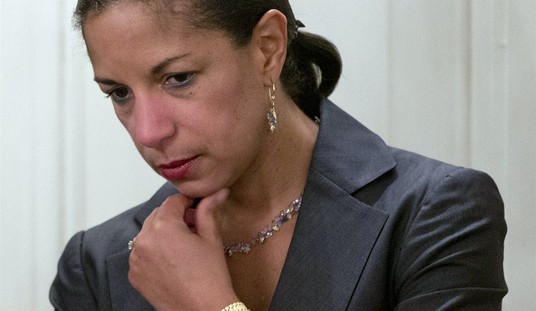Here’s an interesting one for you. The “Greater Idaho” movement, which advocates for several counties in Oregon to secede from the deep blue state and join Idaho, has sparked a passionate debate among residents and politicians. Supporters argue that secession would allow conservative-leaning counties to align themselves with a more politically compatible state, while opponents believe it would be detrimental to all parties involved.
But this regional debate raises another issue: the possibility that it could be a precursor to a national divorce.
A significant chunk of Oregon’s counties has signaled that they wish to leave the state and join up with Idaho:
One-third of Oregon counties have voted in support of the “Greater Idaho” movement to secede from Oregon to join their conservative eastern neighbors.
Wallowa County became the 12th in Oregon to join the initiative after officials finalized the special election results Tuesday, according to Fox News.
The movement started in 2019 when Oregonians living in rural areas of the state decided they would be better off if they could become part of Idaho, a red state whose politics line up more with theirs. On the website, the organization points out that “[s]tate lines have been relocated many times in American history because it just takes an interstate compact between two state legislatures and the approval of Congress.”
Supporters of the movement highlight several key points. First and foremost, they argue that joining Idaho would better represent the values and interests of the rural and conservative counties involved. They believe that the current political landscape in Oregon, particularly in the more populous and liberal western regions, does not adequately reflect their beliefs and priorities. By becoming part of Idaho, they anticipate a stronger representation of their conservative views in state governance.
Proponents also argue that secession would lead to improved economic conditions. They contend that Idaho has a more business-friendly environment and lower taxes, which could attract investment and spur economic growth in the region. Additionally, they claim that being part of a larger, more prosperous state would provide better access to resources and infrastructure development, benefiting local communities.
On the other side of the debate, detractors raise several concerns about the Greater Idaho movement. One of the main arguments against secession is the potential negative impact on Oregon’s political balance. Losing these rural counties would disproportionately favor the political influence of urban areas, exacerbating the urban-rural divide and diminishing the diversity of voices within the state.
Furthermore, there are concerns about the economic consequences of secession. The counties seeking to join Idaho receive substantial funding and resources from the state of Oregon, and losing that support could have detrimental effects on public services, infrastructure, and education. Of course, this would just mean that the state of Idaho would have to fill in the funding gap.
Additionally, critics question the feasibility of merging the two states, as it would require complex legal processes and could result in administrative challenges and disruptions. As the website explained, there are many difficult legal obstacles to overcome before this endeavor could be fulfilled.
Opponents of the Greater Idaho movement also highlight the potential social and cultural impacts. They argue that secession could further polarize communities and exacerbate divisions within the region. Some worry that leaving Oregon could isolate the counties from the rest of the state and diminish opportunities for collaboration, shared resources, and cultural exchange.
This is an interesting conversation as it pertains to the autonomy of local communities. But it also reflects a deeper reality bubbling under the surface. While the movement itself is currently focused on a regional secession, it seems reasonable to suggest that it could set a precedent for broader divisions within the country.
Let us explore this perspective further.
Proponents of the idea of a national divorce argue that the United States has become increasingly polarized along political, cultural, and ideological lines. They accurately point out that the vast differences between regions have created a seemingly unbridgeable divide, hindering effective governance and exacerbating societal tensions. Allowing regions with distinct identities and values to separate would lead to more harmonious governance and allow for the formation of more homogenous communities.
Furthermore, supporters of a national divorce argue that the federal government has become far too powerful and centralized, leaving little room for local governance and decision-making. Even further, Americans have been conditioned to focus more on national politics while essentially ignoring what is happening in their own communities.
Supporters of a national divorce believe that partitioning the country into smaller, more autonomous entities would empower local communities, enabling them to make decisions that align more closely with their unique needs and preferences.
Opponents of the idea, however, raise significant concerns. They argue that a national divorce would be detrimental to the unity and stability of the United States. They contend that dividing the country would lead to economic disruptions, administrative complexities, and the loss of shared resources and infrastructure. They fear that such divisions would only further deepen societal divisions, exacerbating tensions and hindering progress on critical national issues.
Additionally, critics argue that a national divorce would undermine the fundamental principles of the United States as a unified nation. They believe that the strength of the country lies in its ability to embrace diversity, encourage dialogue, and find common ground. They emphasize the importance of working towards bridging divisions and fostering a sense of unity, rather than promoting further fragmentation.
While the “Greater Idaho” movement and similar secessionist initiatives have captured attention and fueled discussions about a national divorce, it is important to note that the concept remains highly controversial and largely theoretical at this stage. The complexities, legal challenges, and potential consequences of such a significant restructuring of the United States make it a highly unlikely scenario in the near future. Still, the Greater Idaho movement shows that the idea of secession is a conversation worth having, especially among those who prefer less centralized government.












